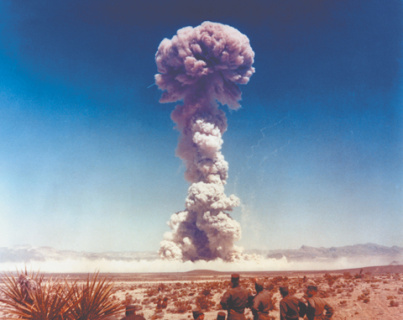
Donald Trump’s recent declaration to potentially resume nuclear weapons testing has sent immediate shockwaves through the global diplomatic community and ignited a fierce debate within his own country. Delivered through his personal social media platform, Truth Social, just moments before a high-stakes meeting with Chinese President Xi Jinping, the announcement caught both seasoned foreign policy analysts and his staunchest supporters off guard. It signals a potential radical departure from decades of established international arms control norms and raises serious questions about the future of global nuclear stability.
The suggestion to reactivate nuclear testing directly challenges a practice largely abandoned by major powers over three decades ago. Trump’s rationale, asserting that “other countries are already doing it,” stands in stark contrast to the international record. Since the 1996 Comprehensive Nuclear-Test-Ban Treaty (CTBT) opened for signature – a treaty signed but not ratified by the US, China, and Israel – only North Korea has conducted nuclear tests. The United States itself halted such tests in 1992, under the Republican administration of George H.W. Bush, solidifying a bipartisan consensus within the Republican Party against revisiting nuclear testing. This latest move by Trump represents a significant ideological break from his predecessors and traditional Republican foreign policy tenets.
Adding to the complexity, the proposed resumption directly contradicts advice from within Trump’s own administration. Brandon Williams, the head of the National Nuclear Security Administration (NNSA), a body responsible for maintaining the safety and reliability of the US nuclear arsenal, informed Congress in April that resuming tests was neither necessary nor advisable. This public disagreement with a key appointee underscores the divisive nature of the proposal and suggests a potential deep chasm between the political leadership and expert opinion on critical national security matters.
For many, the announcement immediately fueled suspicions that Trump is actively implementing elements of “Project 2025,” a controversial document crafted by conservative Republican factions. This blueprint advocates for, among other things, the resumption of nuclear testing and a significant expansion of presidential powers, leading some critics to label it a “plan to dismantle American democracy.” While Trump and his allies have previously sought to distance themselves from the more radical aspects of the project, this latest declaration is viewed by opponents as a clear indication of a direct and unapologetic embrace of its most contentious proposals.
The domestic political repercussions were swift and acute, particularly in Nevada, home to the primary US nuclear test sites. Democratic Senators Dina Titus and Jackie Rosen, representing the state, immediately condemned the proposal and vowed to prevent any tests on Nevadan soil. They have already moved to introduce legislation to block the president’s ability to make such decisions. While a Republican-controlled Congress might typically sideline such Democratic initiatives, the widespread local opposition in Nevada, a crucial swing state, creates a challenging environment for Trump’s Republican allies. The issue is already complicating the re-election bid of incumbent Republican Governor Joe Lombardo, who, despite leading in polls, faces a tight race and has publicly distanced himself from “Project 2025” and its proposals, recognizing the strong anti-testing sentiment among Nevadans.
Amidst the furor, experts are debating whether this is a genuine policy shift or another instance of Trump’s characteristic political brinkmanship. Daryl Kimball, executive director of the Arms Control Association, voiced skepticism about immediate implementation, pointing out the significant technical hurdles. Preparing test sites in Nevada, he notes, would require approximately 36 months, meaning any potential tests would likely occur only towards the very end of Trump’s current presidential term. This raises the question of whether the announcement is a strategic maneuver designed to project strength, sow uncertainty, or rally a specific base, rather than an immediately actionable policy directive. Regardless of its ultimate outcome, the proposal has undeniably thrust the contentious issue of nuclear testing back onto the international agenda, demanding a serious examination of its geopolitical ramifications.
